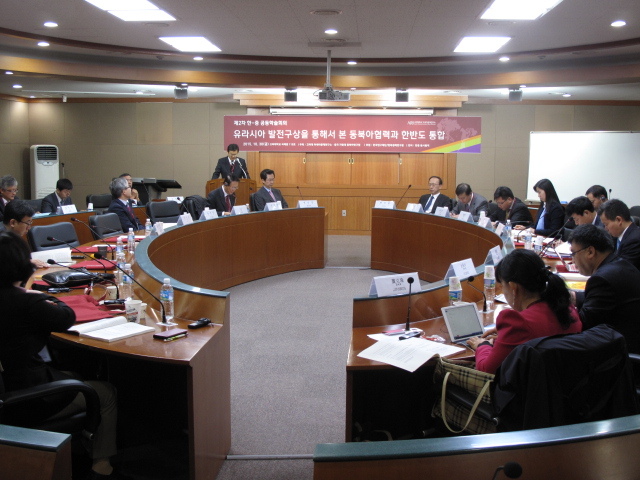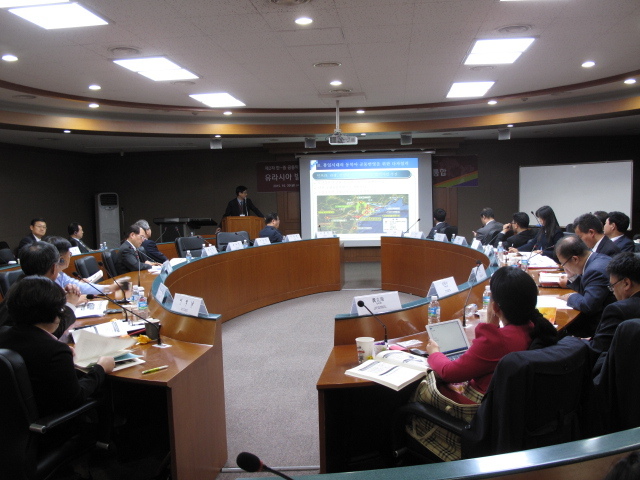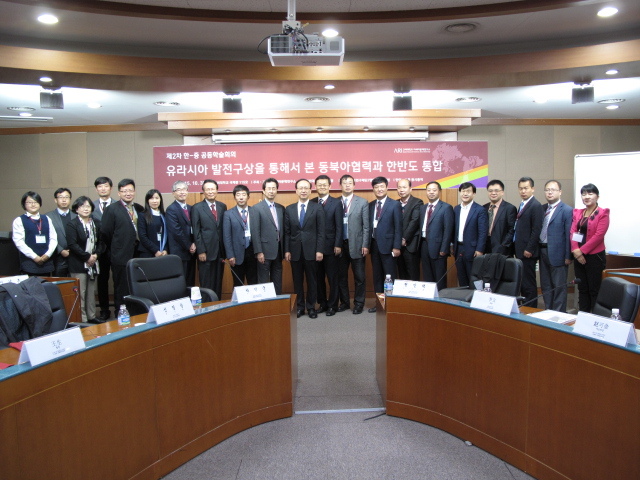학술활동
The 2nd Korea-China Joint Symposium
2015.11.25 3072
[The 2nd Korea-China Joint Symposium]
Northeast Asian Cooperation and Korean Peninsula Integration through the Eurasian Development Initiatives
Date: October 30, 2015 (Friday) 9:00~20:30
Venue: Room 115, International Studies Hall, Korea University
Organizers: HK Center for Northeast Asian Studies, Asiatic Research Institute, Korea University, Northeast Asian Studies College, Jilin University
Sponsors: National Research Foundation of Korea, Hyundai Research Institute
Language: Korean-Chinese simultaneous interpretation
An international symposium on Northeast Asian cooperation and the integration of the Korean Peninsula, held at Korea University on October 30, 2015, brought together more than 30 specialists from Korea and China and a large number of students and citizens interested in this topic. Organized annually on a rotating basis by the Asiatic Research Institute (ARI) of Korea University and the Northeast Asian Studies College of Jilin University, this year’s symposium was entitled “Northeast Asian Cooperation and Korean Peninsula Integration through the Eurasian Development Initiatives.” Following the opening ceremony during which ARI Director Jong-Wha Lee and his Jilin University counterpart Xiao Yu made opening remarks, a special roundtable, organized by senior scholars and former diplomats, shed light on the Eurasian development initiatives, including China’s “Belt and Road Initiative,” and its linkages to the peaceful cooperation and integration in both Northeast Asia and the Korean Peninsula. Chaired by In-kook Park, president of the Korea Foundation for Advanced Studies and former Korean Ambassador to the United Nations, the special roundtable included such panelists as In-Taek Hyun, professor, Korea University, and former Minister of Unification, Wen Li, deputy director of the National Institute of International Strategy, Chinese Academy of Social Sciences, and Jung-seung Shin, former South Korean Ambassador to China. During the follow sessions, the speakers and discussants debated the contents and possibilities of the Eurasian development initiatives by both the Korean and Chinese governments and their impact on the security and economic order of Northeast Asia and the Korean Peninsula.








